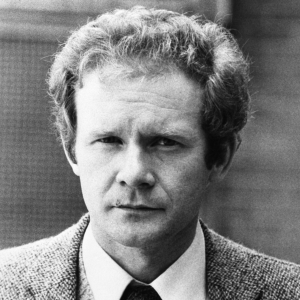Martin McGuinness – the man I navigated the road to the peace process with
Martin McGuinness was a tough paramilitary leader who became a statesman. It required a lot of intelligence, courage, skill and tenacity to recognise around 1990 that armed struggle, and even the twin armalite and ballot box strategy, had reached a dead end, where it could go no further, except backwards, and to seek help in finding a way out of the impasse, not just for his movement, but for his community and his country. The personal risks for him were very high.
Politics
He was the one chosen to do most of the private talking behind the scenes in what is now called back-channel diplomacy, exploring the potential for ending conflict and participating fully in politics, where in the 1980s a party platform had been built. First, with the help of a couple of Derry intermediaries, a secret channel to the British was re-opened.
Sometime later, a separate channel was also re-opened with the Irish Government through the Department of the Taoiseach. The dialogue was both at the level of principle, allowing pursuit of the legitimate objective of a united Ireland, in keeping with both consent and the right of self-determination concurrently exercised, and also more immediate practicalities, which would allow confidence to be built and normalisation to take place.
Martin McGuinness’ discussions with the Taoiseach’s representative (myself) all took place, using the good offices of Fr Alex Reid, in the Redemptorist Monastery in Dundalk, and once or twice in Orwell Road in Dublin. There were also regular meetings between John Hume and Gerry Adams in Clonard Monastery.
When ceasefires were achieved, they needed to be underpinned by a peace agreement. Adams and McGuinness and some of their colleagues were in constant touch with British, Irish and American officials, and, when negotiations finally got under way, had many meetings with Tony Blair and Bertie Ahern.
The task was not only to find a path forward that would satisfy the basic needs of the different parties, but also to keep in constant touch with the movement so as to be able to bring it with them.
The Good Friday Agreement was an outstanding negotiating achievement. Not many leaders of similar type movements abroad were able to achieve as much. It took the best part of 10 years to work through thorny issues of decommissioning and policing reform, and Martin McGuinness with Adams was at the centre of those discussions, which experienced many upsets along the way.
Finally, in 2007 Martin McGuinness took on board as deputy First Minister the formidable task of making the agreement work at an institutional level with Dr Ian Paisley and his successors, and it was a tremendous achievement to sustain this without major interruption for almost 10 years.
The recent success of Sinn Féin at the polls in Northern Ireland was an endorsement of his efforts.
He also earned much credit for his conciliatory gestures, in relation to meeting Britain’s Queen Elizabeth II, and his attitude to First World War commemorations, and his party eventually adopted his more positive attitude to the European Union by opposing Brexit. His experience will be sorely missed, but it is to be hoped that his achievements will influence those who come after him.
Martin Mansergh is a former Minister of State and a long-time negotiator in the peace process.


 Dr Martin Mansergh
Dr Martin Mansergh
